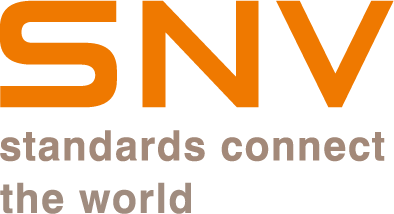Survey results support decision to propose a standard for employment screening in Switzerland


Survey results support decision to propose a standard for employment screening in Switzerland


Highlights
Introduction
Initiated by a request from the Swiss Federation for Psychologists (FSP), the Swiss Association for Standardisation (SNV) has set up an interdisciplinary national project (within the existing national standards committee INB/NK 3168) to develop a standard for the implementation of job-related proficiency assessment in Switzerland. The aim is to create a Swiss reference service norm and to establish a best practice that will ensure the best possible outcomes for job related proficiency assessments as well as transparency and equal treatment for candidates that are the subject of such assessments.
The company Aequivalent, Switzerland’s largest provider and digital platform for employment screening, has decided to participate to bring in the risk management view to this interdisciplinary project and contribute with its expertise in employment screening and (human) risk management.
In the period from October 2021 to March 2022, a survey was broadcasted through the SNV’s network, and interviews were conducted in collaboration with Aequivalent in order to collect further empirical data about employment screening in Switzerland, from stakeholders at public authorities, NGOs, NPOs, industry and commerce.
The survey was received by 882 Swiss based public and private organisations that are operating within diverse industries. The results reported below allowed to better analyse the most common (best) practices in employment screening from a human risk mitigation perspective and the support for the establishment of a standard.
Survey results
Best practices in employment screening
The Human Resources department is held responsible for employment screening in most organisations, whereas the Risk Management, Security and Compliance departments are most often requested to play a “supportive” role.
From the 5 listed human risks that need to be mitigated during employment screening, it is (a lack of) integrity which most often selected as “very important”. The absence of qualifications or the presence of conflicts of interest follow.

68% of the respondent’s organisations have established a list of sensitive functions. Within regulated organisations that responded, this percentage amounts to 90%. Access to financial resources, decision making powers and legal responsibility are the top 3 elements that define a position as “at risk”. Access to strategic infrastructure, access to client data and security related functions follow closely and are considered at risk by more than two thirds of the organisations that responded.
80% of respondents has policies or procedures in place to mitigate human risk. Most often, these policies concern the implementation of enhanced recruitment and selection procedures (52%), followed, at some distance, by whistleblowing (24%) and enhanced internal control procedures (14%).
78% of respondents has formalised their policies and procedures and 58% of respondents apply them also to external contractors or consultants.
Diplomas and qualifications (76%), criminal records (61%), former employers (59%) and financial probity (37%) are most often systematically verified during pre-employment screening. Public internet presence, ancillary activities (conflicts of interests) and employment gaps are sometimes to often verified as well. In order to be able verify these elements correctly, 71% of respondent organisations verify the identity and current address (59%) of the candidate. The address history is verified rarely (which exposes these organisations to integrity risks).
Criminal record extracts, financial probity documents, work permits, former employers and diplomas and qualifications are most often verified at the source. For ancillary activities, activities during employment gaps and driving records is more often relied on documents or employee declarations (which exposes these organisations to integrity risks).
During reference checks at former employers, the reasons for leaving (69%), performance (69%) and responsibilities (63%) are most often verified. Job title, start- and end date, personality as well as potential integrity or disciplinary related procedures are verified systematically in more than 40% of the organisations.
The formal obtention of the diploma (72%) is checked most systematically during diploma checks. The official diploma title (55%), corresponding academic level (52%) and start- and end date (45%) are verified systematically in more than 40% of the organisations.
During e-reputation (internet) checks, the absence of discriminatory remarks (73%) and confidential information disclosure (68%) are most often indicated as «very important» elements to check during employment screening. The absence of problematic content (54%), inconsistencies with CV (48%) and being part of controversial groups (48%) are considered as very important by more than 40% of the organisations as well.
Additional elements of importance
Conclusions and recommendations
The survey results support the initiative to integrate aspects for employment screening in the Swiss adoption of the German standard DIN 33430 Job related proficiency assessment and give a good indication of what elements are considered as most important or best practice in employment screening in Switzerland.
Based on the survey results, the report proposes :
For more information on the survey results, please contact info@aequivalent.ch or T +41 24 524 30 02. If you would like to actively participate or know more about the development of the standard, please contact lea.leibundgut@snv.ch.
Download the full report :
Image credits : www.freepik.com
Date of publication : 07.02.2023
Author: Aequivalent’s Marketing and Sales team